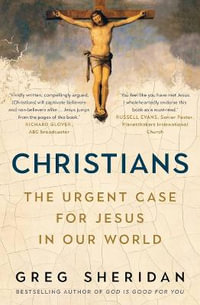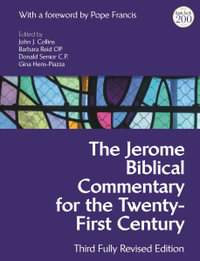Faithfulness to prayer leads to a recognition of the need and an acceptance of the responsibility to pray for one another. By providing short prayers for each day of the school year,Daily Prayer in the Classroom assists teachers, parents, and others in the experience of praying with children each day.
Daily Prayer in the Classroom introduces elementary school children to various kinds of prayer; gives teachers confidence in what and how they pray with their students; builds confidence in the adult's ability to lead prayer in the classroom or home; and offers children the opportunity to foster a prayer life. By continuing to pray daily, participants begin to see the connection between prayer and action. As they allow themselves to be open to the Holy Spirit they develop a personal relationship with God and with each other.
Daily Prayer in the Classroom consists of short prayers for each day from August through June. Each day begins with an introduction or background followed by questions for discussion and a short prayer. Part One includes prayers for each day of the calendar year including the feasts of saints, prayers for those in need, and prayers for deepening spirituality. Part Two includes prayers for the movable feasts, the incarnation and paschal cycles. A special section of prayers includes blessings of people, places, and things; traditional prayers; virtue; personal, local, national, and international needs, and times of illness or death.
Kathleen Foley, CSJ, has experience in elementary schools as a teacher and in administration. She was the coordinator of religion in elementary schools for the Archdiocese of St. Paul and Minneapolis and taught in the theology department at the University of St. Thomas in St. Paul. She is the co-editor of Focus on Theology, a video and book series for adults, published by The Liturgical Press.
Peggy O'Leary, CSJ, taught religion and English in elementary schools in the Archdiocese of St. Paul and Minneapolis. For eleven years at the University of St. Thomas in St. Paul she coordinated a program for teachers of religion in Catholic elementary schools. She is the co-editor of Focus on Theology, a video and book series for adults, published by The Liturgical Press.
Industry Reviews
Have you ever been caught speechless or nervous when the principal asked you to open each class with a prayer? If so, then these 'daily prayers' will get you off to a good start. The selection for each day includes an introduction, questions for discussion and a short prayer - all of which may be adapted to the unique needs of your class. The brief background for each day adds an important dimension to prayer: not only will the children direct their attention to God, but they'll also begin to see the connection between prayer and action in their everyday lives. This is a resource even experienced teachers will want to keep within easy reach!Catherine McNamee, C.S.J., Former President of NCEA One of the many excellent things that stand out in this prayer book for children, and adults who pray with them, is that it follows the Church's liturgical cycle. Children can thus be taught to pray in relation to the liturgical season or feast. Their personal prayer becomes inspired by the Church's liturgy and is fed by its spirit, themes, and rhythm. This is brought out in the simple and beautiful style of the introduction and prayer for each day of the school year.Fr. Jorge Perales, Parochial Vicar, St. John Bosco Church, Miami, Florida . . . exactly what Catholic School teachers have been looking for! It is a practical, child-friendly approach to prayer that is grounded in our rich Catholic tradition, liturgical life and spirituality. What a wonderful way to 'connect' with students at the beginning of each day! The prayers and reflections set the tone for a school day lived in God's presence. I will be recommending this book to all of my colleagues . . . and to the parents of my students as well!Kevin Scroggins, St. Odilia Parish School, Shoreview, Minnesota This collection of daily prayers for children is especially welcome because in simple language it clearly and consistently emphasizes the God of love and mercy. As I have occasionally shared some of these prayers with my grandchildren, I was pleased to see how naturally and openly they responded to the questions. They have come to realize that they need not try to live heroic lives in order to earn God's love, that God's infinite love is freely given to them at birth.Donald Conway, Edina, Minnesota

![NRSV Catholic Bible Gift Edition [White] : Holy Bible - Thomas Nelson](https://www.booktopia.com.au/covers/200/9780785230380/2211/nrsv-catholic-bible-gift-edition-white-.jpg)













![NRSV Catholic Bible Gift Edition [Teal] : Holy Bible - Thomas Nelson](https://www.booktopia.com.au/covers/200/9780785230410/9912/nrsv-catholic-bible-gift-edition-teal-.jpg)








